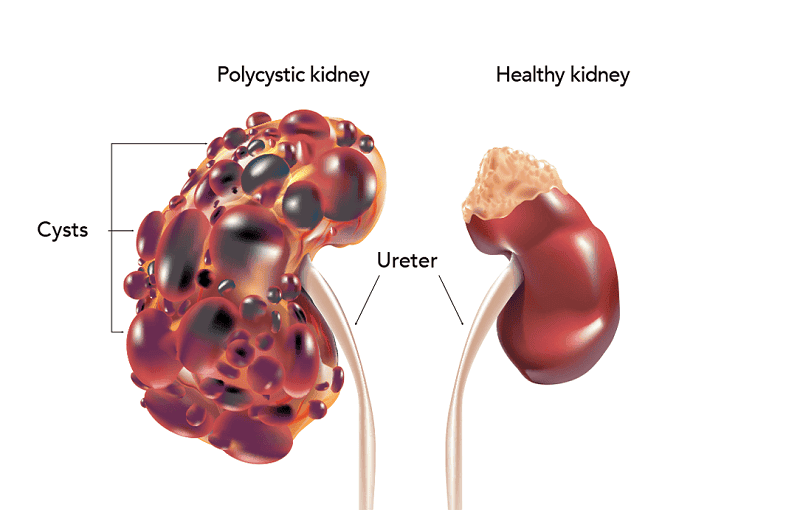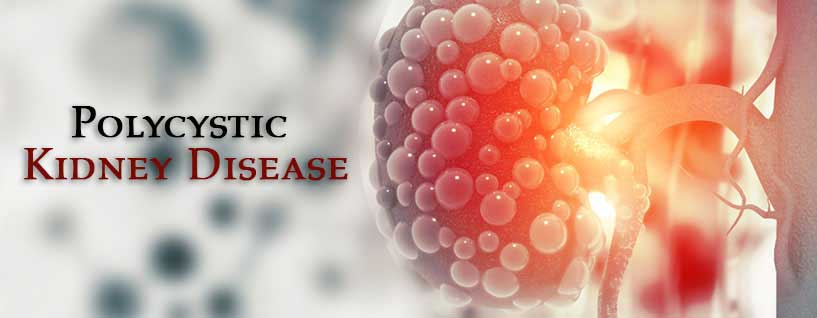The choice to become a parent is deeply personal. The dangers and rewards of having a child must be discussed by both parents. There is a 50% chance that a child who has one afflicted parent will also carry the PKD gene.
PKD is most frequently diagnosed with pre-symptomatic screening of at-risk patients (with a positive family history) using ultrasonography, which is affordable, safe, and widely accessible. In contrast, unanticipated kidney cyst discoveries in at-risk patients undergoing imaging tests for other reasons may also result in the diagnosis of PKD. Early PKD diagnosis has become more typical in both situations and may have significant consequences for family planning.
In general, pregnancies in women with PKD who have normal blood pressure and renal function go smoothly and they give birth to healthy children. On the other hand, increased blood pressure is a risk factor for PKD during pregnancy. Some pregnant women with PKD may develop hypertension and are more prone to experience ongoing blood pressure increases.

Women who already have high blood pressure run the risk of having it rise even higher during pregnancy, and those who had issues with their first pregnancy are more likely to experience them again with subsequent pregnancies.
It must be noted that whether or not she has hypertension, a woman with PKD should be properly watched during pregnancy. Preeclampsia, a dangerous pregnancy issue where the placenta can be prevented from receiving adequate blood, can be detected by increase in blood pressure and protein in the urine. The growth of the fetus may be hampered if the placenta doesn’t receive enough blood, which could lead to low birth weight, early birth, and other issues for the child.
Can women with PKD get pregnant?
Your ability to conceive and have a healthy pregnancy is significantly influenced by your kidney function. The levels of reproductive hormones in your body may be significantly lowered if your kidney function is very poor, which could make it more difficult for you to get pregnant.
In the general population, 2 in 10 women (20%) may miscarry early in pregnancy (before 12 weeks). According to one study, the chance of miscarriage increases to 3 in 10 (30%) in women with PKD who are taking medication to manage high blood pressure.
One must ask their physician or renal specialist for help if they’re having trouble conceiving.

Can men with ADPKD father children?
Except in a few cases of impaired kidney function, men with PKD often have normal sperm counts. Men with severe PKD and who have undergone transplantation typically become fertile shortly after the procedure. Although PKD can result in cysts in the reproductive system, it’s unusual for this to have an impact on fertility. One can consult their physician or a kidney specialist for advice regarding your fertility.
How likely is it that my child will inherit PKD?
If either you or your partner has PKD, there is a 50% risk that your unborn child will also inherit a defective gene and live with PKD.
Does PKD affect pregnancy?
Most women with PKD deliver healthy babies and have safe pregnancies. You have a very good chance of having a healthy pregnancy if your kidney function is normal or only slightly compromised. Although every person is unique, the risk of problems during pregnancy rises as kidney function deteriorates.
Based on your kidney function, a nephrologist or an obstetrician can provide you advice on the risks of becoming pregnant or during pregnancy.
There is a higher likelihood that you will experience certain pregnancy issues if your kidney function is impaired:
- Greater chance of caesarean delivery.
- Pre-eclampsia
- Pre-implantation genetic diagnosis (PGD)
- Slow fetal growth rate or low birth weight baby.
- Pre-term delivery(before 37 weeks)
If you already have high blood pressure before becoming pregnant, especially if it has been an ongoing issue, your risk of giving birth prematurely is increased.
The duration of pregnancy should be carefully managed. During pregnancy, the doctor must keep a closer eye on the patient to spot any issues early and treat them as early as possible.
It has been observed that some popular medications used by PKD patients could be dangerous to use while pregnant since they may have an impact on the unborn child. It is therefore crucial to talk to your doctor if you want to get pregnant while taking any medication. You might also need to make arrangements to transition to a different medicine. One must also remember that discontinuing any medicine without first consulting your doctor puts you and your unborn child at risk for difficulties. For a healthy and successful pregnancy, an excellent blood pressure control is particularly crucial.

How ayurveda helps in PKD and pregnancies?
Ayurveda plays a very important role in our health and life. We all have heard from our grandparents about the healing powers of herbs.
Ayurveda describes in detail the factors to be considered for a healthy and happy child birth. It describes the complete science and nutrition for each stage of development of the child.
Ayurveda has been helpful in treating PKD too. Polycystic kidney disease treatment in Ayurveda is the safest and helpful way for curing kidneys. It could be really helpful for pregnancies with PKD. It works to root out the disease by changing the diet and the lifestyle modifications.
Ayurveda is a deep science and requires proper determination and control to show the results. While undergoing any treatment in ayurveda, if one really wants to cure your problems, you need to follow the proper diet and important instructions.
Ayurvedic Treatment for PKD includes the use of herbal medicines. These herbs help to keep the body organs free from infections and other complications caused by the PKD.
If you are bringing a new life on this planet, ayurveda can help you provide utmost help to give birth to a healthy baby. Nowadays, people around the globe are also focused on maintaining a healthy body and mind. So, choosing Polycystic Kidney Disease Treatment in Ayurvedic during pregnancy could be a good decision.

